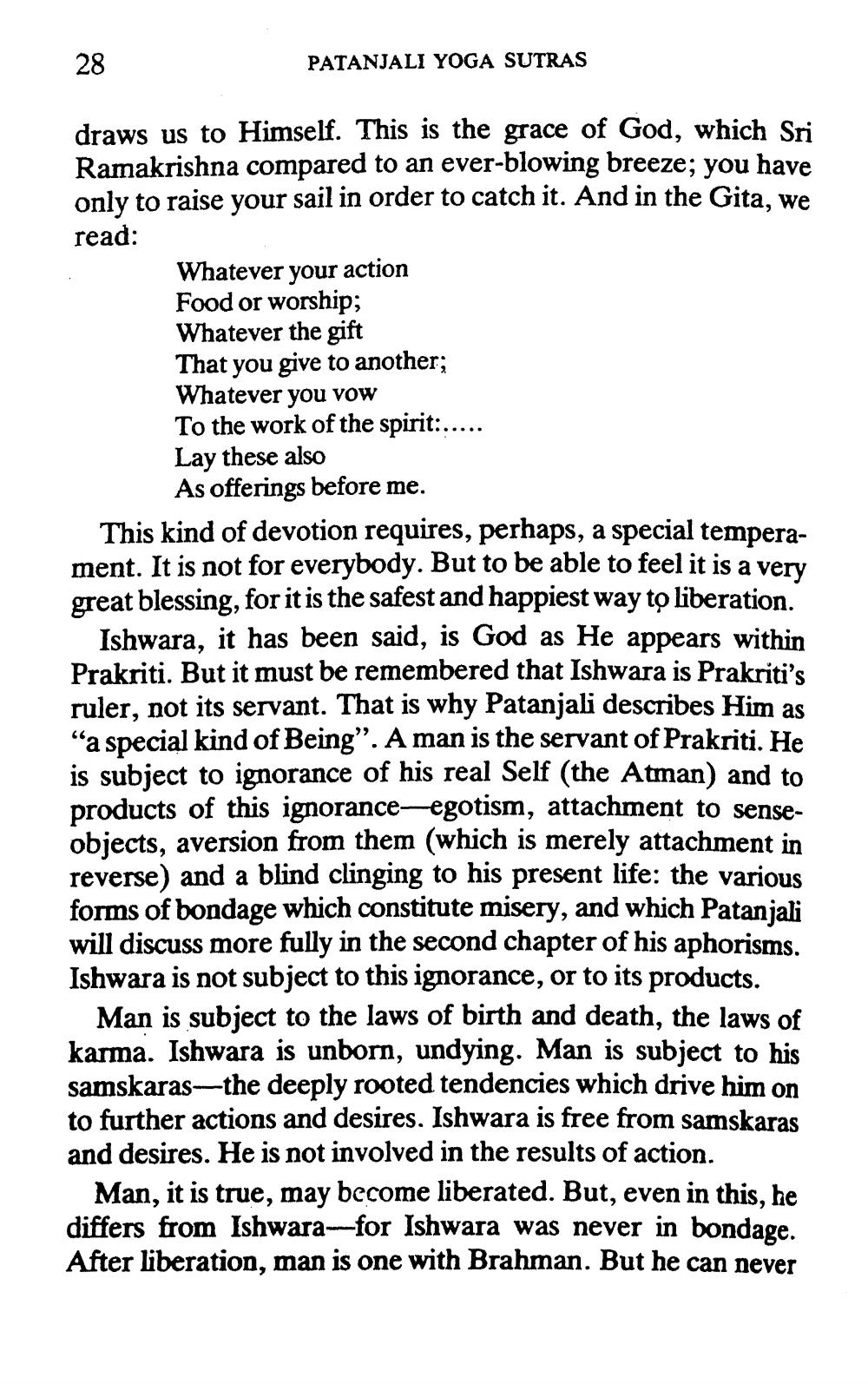________________
PATANJALI YOGA SUTRAS
draws us to Himself. This is the grace of God, which Sri Ramakrishna compared to an ever-blowing breeze; you have only to raise your sail in order to catch it. And in the Gita, we read:
Whatever your action Food or worship; Whatever the gift That you give to another; Whatever you vow To the work of the spirit:.... Lay these also
As offerings before me. This kind of devotion requires, perhaps, a special temperament. It is not for everybody. But to be able to feel it is a very great blessing, for it is the safest and happiest way to liberation."
Ishwara, it has been said, is God as He appears within Prakriti. But it must be remembered that Ishwara is Prakriti's ruler, not its servant. That is why Patanjali describes Him as “a special kind of Being”. A man is the servant of Prakriti. He is subject to ignorance of his real Self (the Atman) and to products of this ignorance-egotism, attachment to senseobjects, aversion from them (which is merely attachment in reverse) and a blind clinging to his present life: the various forms of bondage which constitute misery, and which Patanjali will discuss more fully in the second chapter of his aphorisms. Ishwara is not subject to this ignorance, or to its products.
Man is subject to the laws of birth and death, the laws of karma. Ishwara is unborn, undying. Man is subject to his samskaras--the deeply rooted tendencies which drive him on to further actions and desires. Ishwara is free from samskaras and desires. He is not involved in the results of action.
Man, it is true, may become liberated. But, even in this, he differs from Ishwara--for Ishwara was never in bondage. After liberation, man is one with Brahman. But he can never




